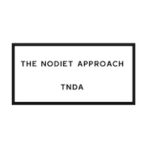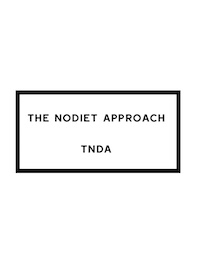Hunger and fullness
Hunger must be one of the most talked about subject, whether it is to fulfill it or to combat it, people are always wondering whether it is time to eat or not. The best indicator is your body’s inner signals. Unfortunately diet and overeating disrupted our sense of normality thus creating an imbalance in our biological clock.
What is the practical definition of hunger and fullness?
Is it a sense of discomfort in the belly after food consumption or belly noises before eating?
Extreme hunger and fullness are annoying, whereas moderate hunger and fullness are easy to handle once dealt with. So whenever you hear inner voices convincing you to stop eating while having your last bite, drop the spoon! Honestly it takes some training to reach that level, but it is never too late to give it a try and listen to your body’s needs. It is estimated that 20 minutes are needed for the brain to receive satiety messages; it is best to sit at a table and grant that meal the time it deserves without squeezing it between two meetings or while watching your favorite TV show.
There is an exchange of information between the body and the brain orchestrated by hormones. ‘Ghrelin’ or the ’hunger hormone’ is the most popular one and is released by stomach and intestine cells every 30 minutes as a brain signal for food intake, but thanks to ’Leptin’ the ‘fullness hormone’ we are able to control our eating pattern and so we won’t snack all day.Leptin is produced by fat cell and sends fullness signal to the brain. Obesity and other health diseases occur when hormone balance is disrupted. Refined sugars may interfere with the body brain communication and create leptin resistance, a condition that leads to weight gain due to an inability of the brain to respond to fullness signals. Studies suggest that eating a whole food diet by favoring whole wheat bread, fruits and nuts help limit the damage done by processed food.
There is evidence that skipping meals will make you gain fat because your body will enter into starvation mode thus leading to calorie storage. Always keep snacks at hand such as: yogurt, granola bars, fresh fruits and nuts.
The amount of food and the speed at which we eat can have a negative impact on weight. Portion control is an important tool to manage.
Researchers found that eating quickly can affect their weight status. ’Clean-your-plate’ syndrome was very common during childhood as moms tried to make sure their children ate sufficient nutrients by firmly asking them to finish their plates. This symptom is also common in people who avoid wasting food. We should shift our mindset from eating until we are full to eating until we had just enough to prevent a potential dysfunctional mechanism. The best way to assess hunger is by avoiding ‘eating by the clock’ or eating when your clock indicates meal time but rather wait for your body’s need to eat.
The food industry plays a big role in making us hungry all the time by promoting snacks and meals through attractive ads that promote eating as a habit rather than a vital need. Needless to say that eating is also a pleasurable activity specially when it is flavorful and nutritious.
Certain emotions such as anger and stress can create manifestations that mimic hunger which drives us to overeat creating guilt feelings followed by the consumption of an uncontrollable amount of food.
Hunger is not a feeling to be feared of, it is an indicator that the body is working fine and that food is getting properly digested. So do not grab the first thing that crosses your way when you hear your stomach growling. Have a cup of water and give it some time to make sure that it was a hunger signal and not a thirst call.






















